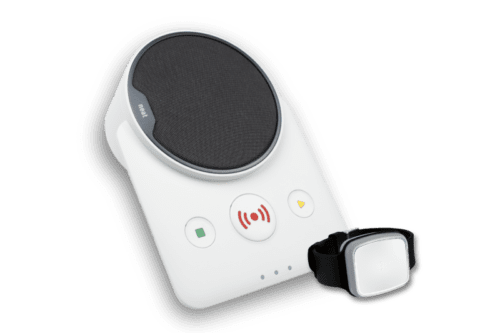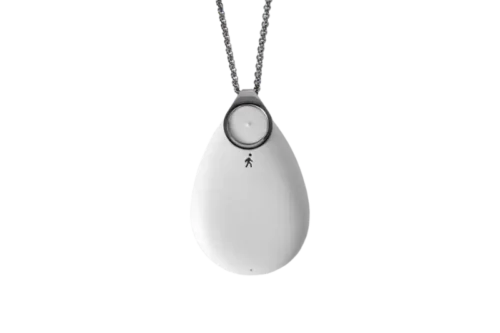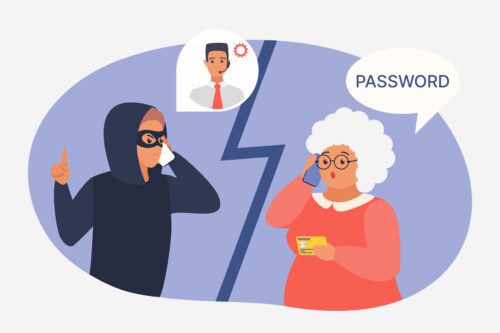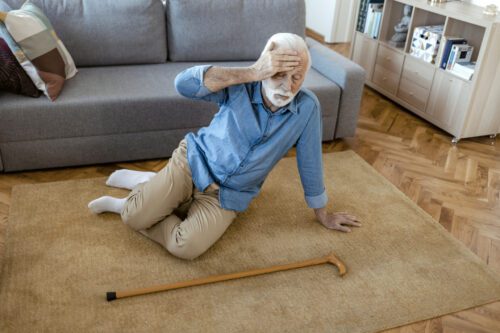As temperatures drop and energy prices rise, many are finding it increasingly harder to afford their heating and other household bills. In 2022, more than 60% of adults in the UK reported being worried about keeping warm at home during the winter.
As a result, many households are cutting back on their heating, which can make people feel uncomfortable and even lead to health problems. This is especially worrying for older adults, as cold temperatures can worsen certain health issues like arthritis and breathing problems. They are also more likely to catch illnesses such as the flu and pneumonia. One of the simplest and most effective ways to protect against these viruses is to stay warm. So, how can you stay warm this winter without breaking the bank?
Related: Tips for Older People to Save Money in 2024
First, let’s take a look at some effective ways to keep warm before reaching for the thermostat.
- Layer up. Wearing multiple layers of clothing helps to trap body heat, especially if you start with thermal clothing. Thermal clothing helps to retain your natural body heat by trapping air close to your body. This helps block cold air from getting to your skin and keeps the warm air from escaping. It’s also thin and flexible, which makes it perfect for layering under your everyday clothes.
- Use blankets and throws. Keep extra blankets and throws nearby for when you’re sitting or lying down, as we often feel the coldest when we’re not moving around.

- Electric blankets. As well as regular blankets, consider investing in an electric blanket for extra warmth. You can also try using your electric blanket or a hot water bottle to warm up your bed or sitting area. This can help you stay warm without having to heat the entire house.
- Move around. Try some gentle exercises, such as walking or stretching, to generate warmth without straining your body. This not only helps combat the cold but also benefits your overall health.
Maximise Your Heating
As the weather worsens and these tips aren’t enough, here are some ways to maximise your heating and reduce unnecessary energy consumption.
Heat only the rooms you use. Close the doors to unused rooms and focus on heating the areas where you spend most of your time.
Adjust your thermostat. Most modern thermostats let you create a daily routine for changing the temperature in your home. For example, you can set it to a lower temperature while you sleep and then increase the temperature just before you get up in the morning. Even slight adjustments like this can lead to savings. It would also help to turn your heating off when you’re not at home.
Use draft excluders. About 18% of the heat of a home escapes through the windows. Check windows and doors for drafts, and use draft excluders to seal any gaps.
Insulate your home. Good insulation in your home keeps it warm by retaining heat. This means you won’t need to turn on the heating as often, which saves energy and reduces your bills.
What areas should you insulate?
Heat rises, so if your roof or loft isn’t well-insulated a lot of the heat in your home will escape. Hence, this is one of the most important parts of the house to insulate.
Another part of the home that is crucial to insulate is the walls. Approximately one-third of the heat lost in the average home escapes through the walls. Adding insulation in these areas will help keep your home warm while saving energy and reducing your heating costs.
Use heavy curtains. Following the same principle as insulation, thick curtains can help keep the heat in and the cold out. Make sure to close them as soon as it gets dark outside to maximise insulation. Most thick curtains work to keep the cold out, but thermal curtains work best. Thermal curtains have multiple layers of fabric which help to trap cold air, keeping it from entering your room.
If you’re renting a home that feels cold, it’s a good idea to talk to your landlord about making it warmer. It’s up to your landlord to make the needed updates to, at minimum, reach an energy rating of ‘E’. They might be able to improve the heating or add better insulation. There could also be some financial assistance available to help with these changes.
Government Support
In addition to these simple tips and home improvements, you may be able to get help heating your home from the following government schemes.

Winter fuel payment
Every year, the government gives a special payment called the Winter Fuel Payment, which is provided to help people pay for heating during the cold months. The amount you get can change depending on your age and whether anyone else in your home is eligible for the payment.
Warm home discount
The Warm Home Discount is a one-off discount on household bills offered to those on low incomes or anyone receiving pensions. If your energy supplier is part of the Warm Home Discount scheme, your one-off payment will be handled automatically.
Cold weather payment
When temperatures drop to extreme levels, such as Zero degrees Celsius or below, individuals receiving Pension Credit or Universal Credit, can receive additional financial support through the Cold Weather Payment.

Cold weather can be tough on everyone, but it can be especially challenging for older ones. When it gets cold, it can be harder for them to get about and visit friends or family. If you’re an older person and you’re worried about feeling lonely this winter, please consider some of the advice in our article 8 Ways to Thrive Socially as an Older Person.

Another factor to consider as an older person this winter is icy conditions. Icy pavements and walkways increase the risk of slips and falls, which can result in serious injuries. If you haven’t already considered it, now is a good time to think about getting a fall alarm. If someone falls, this device can quickly notify a caregiver or emergency services, making sure help arrives fast, even if the person is alone. Staying safe is even more important during the cold months. Fall alarms are a valuable tool in ensuring safety and promoting peace of mind.
We’ve considered many different factors that can make winter challenging for older ones. Please reach out and check in on your older relatives or friends to make sure they do not feel isolated, and that they have the resources and tools to stay warm this winter.









